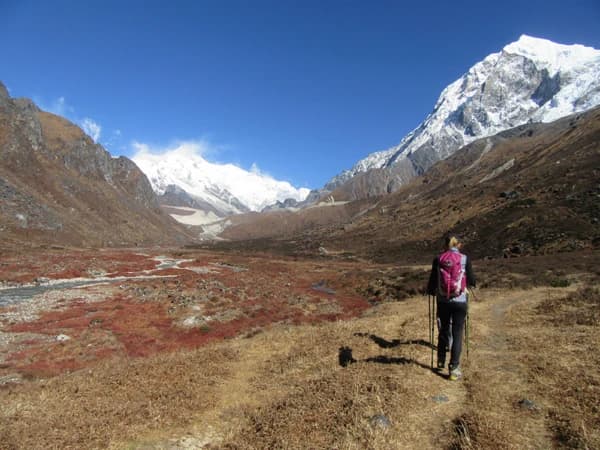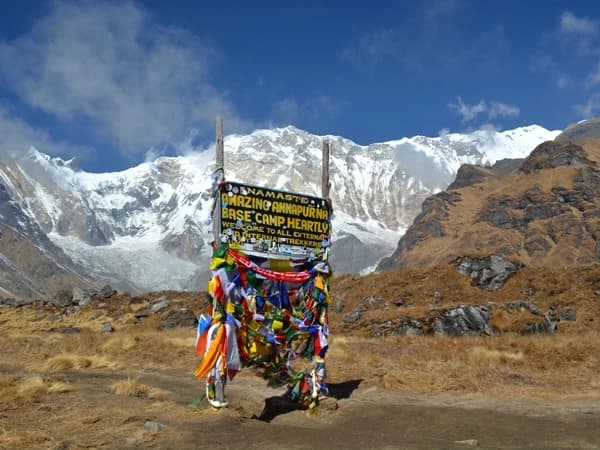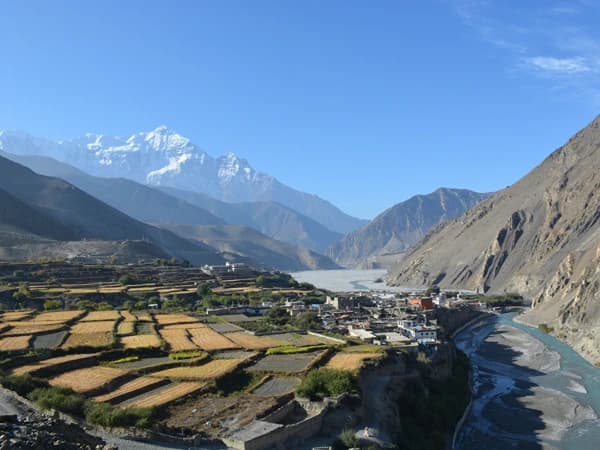Registration and License
The primary concern when engaging in trekking activities is safety. Trekking involves navigating challenging terrains, unpredictable weather conditions, and potentially hazardous situations. Booking with a registered and licensed trekking company ensures that they adhere to safety regulations, have experienced guides, and maintain high operational standards.
These companies are often registered with local tourism or trekking associations, which enforce safety protocols and regularly inspect their operations. By choosing a registered and licensed company, you significantly reduce the risk of accidents, mishaps, or inadequate emergency response during your trek.
Unregistered or unlicensed trekking companies may operate without meeting legal requirements or quality standards. By verifying the registration and license of a trekking company, you can ensure its authenticity and reliability. Registered companies are typically recognized by local authorities, tourism boards, or trekking associations.
Choosing a registered company gives you confidence in its legitimacy and a higher level of trust that it will deliver the services promised. Likewise, a registered and licensed trekking company provides you with legal protection and recourse in case of any issues or disputes. In the event such as trip cancellations or conflicts, dealing with a registered company ensures that you have legal rights to ask for the best solution.
Clients Reviews and Testimonials
One of the most valuable sources of information about a trekking company's reliability, quality of service, and customer satisfaction is the reviews and testimonials shared by previous clients. Clients' reviews and testimonials offer authentic and unbiased feedback about their experiences with a trekking company. They provide valuable insights into the company's performance, professionalism, safety measures, customer service, and overall satisfaction.
Authentic feedback from fellow trekkers can help you make an informed decision and avoid potential disappointments or unpleasant surprises. Reviews and testimonials shed light on the quality of service and reliability of a trekking company. By reading about the experiences of previous clients, you can assess whether the company delivers on its promises, such as knowledgeable guides, well-maintained equipment, comfortable accommodations, and timely organization of logistics.
Positive reviews and testimonials indicate a high level of satisfaction among clients, suggesting that the company is likely to provide a reliable and well-organized trekking experience. Conversely, a pattern of negative reviews may serve as a red flag, indicating potential issues or shortcomings that you should consider before booking with the company.
When evaluating a trekking company, we advise you to gather reviews and testimonials from multiple sources. Explore various platforms, such as the company's website, travel review websites, social media platforms, and online trekking communities. Gathering information from diverse sources allows you to form a more comprehensive and balanced understanding of the company's reputation rather than relying on a single viewpoint.
Safety Standards of the Company
One of the key aspects of safety during a trek is the expertise and competence of the guides and staff accompanying you. When assessing the safety standards of a trekking company, inquire about the qualifications, experience, and training provided to their guides.
Certified and experienced guides possess the necessary skills to navigate challenging terrains, handle emergencies, and provide assistance when needed. By ensuring that the trekking company employs knowledgeable and professional guides, you can trust in their ability to prioritize your safety throughout the trek.
In remote trekking regions, unexpected situations can arise, including injuries, illnesses, or adverse weather conditions. Therefore, it is crucial to evaluate a trekking company's safety standards regarding emergency preparedness and evacuation plans. Inquire about the company's protocols for handling emergencies, such as communication systems, first aid supplies, and access to medical facilities.
A reliable trekking company will have well-defined emergency response procedures in place, ensuring that appropriate measures are taken promptly to ensure your safety and well-being. Similarly, also ask about the company's risk assessment processes and their strategies for mitigating potential hazards. Prioritizing safety standards when booking a trek enables you to embark on your adventure with peace of mind.
Experience years of the agencies
The experience and expertise of a trekking company significantly impacts the quality of your trekking experience, ensuring a safe, well-organized, and memorable journey. An experienced trekking company possesses in-depth knowledge of various trekking routes and destinations. They have explored and extensively researched the routes, allowing them to provide accurate and detailed information about the terrain, difficulty level, attractions, and highlights of each trek.
By choosing a company with extensive knowledge, you can gain insights and recommendations tailored to your preferences, ensuring that you select a trek that aligns with your fitness level, interests, and desired experience. Their expertise allows them to assess and minimize potential risks, such as monitoring weather conditions, selecting appropriate routes, and providing necessary safety equipment.
Likewise, experienced trekking companies employ guides who are well-trained, knowledgeable, and passionate about the destinations they operate in. These guides are familiar with the local cultures, flora and fauna, safety protocols, and emergency response procedures. Their expertise adds value to your trekking experience, as they provide insightful commentary and navigation assistance and ensure your safety throughout the journey.
Certified guides and porters
Certified guides and porters bring a wealth of knowledge, experience, and expertise to your trekking experience. They have undergone specialized training programs that cover various aspects of trekking, including navigation, safety procedures, first aid, and cultural sensitivity.
By choosing a trekking company that works with certified professionals, you can expect a higher level of professionalism, ensuring that you are in the hands of knowledgeable experts who can enhance your trekking experience.
They can offer information about local customs, traditions, and etiquette, enhancing your cultural immersion during the trek. Their understanding of the local ecosystem and terrain helps them navigate effectively and choose the best routes for the trek.
Similarly, certified guides are well-versed in assessing and mitigating risks, ensuring that appropriate safety measures are implemented throughout the trek. They possess the skills to handle emergency situations effectively, providing immediate assistance and organizing timely evacuations if required.
And certified porters are trained to handle equipment, manage loads, and support the overall safety and well-being of the trekking group.
Local trek and tour operator
Local tour operators have intimate knowledge of the trekking destination as they are rooted in the local culture, traditions, and natural surroundings. They possess firsthand experience and insights into the trekking routes, hidden gems, and lesser-known trails.
By choosing a local tour operator, you gain access to their extensive destination knowledge, allowing you to explore the most captivating aspects of the region and discover unique experiences that may not be readily available through non-local companies.
Trekking with a local tour operator offers an opportunity for deeper cultural immersion and authentic experiences. They can arrange interactions with local villagers, provide insights into the region's history and folklore, and facilitate opportunities to experience traditional festivals or ceremonies.
Local operators typically hire local guides, porters, and staff, providing employment and income opportunities to the community members. By booking with a local company, you help foster economic growth, promote community development, and ensure that a fair share of tourism revenue stays within the local region.
Quality Services
A trekking company that prioritizes quality of service places a strong emphasis on safety and risk management. They have established safety protocols, regularly train their guides and staff, and conduct comprehensive risk assessments. Such companies prioritize your safety throughout the trek, ensure well-maintained equipment, and have emergency response plans in place.
By choosing a trekking company that excels in safety and risk management, you can trek with confidence, knowing that your well-being is their top priority. A well-regarded company meticulously plans and arranges all aspects of your trek, including transportation, accommodations, permits, and meals.
Likewise, the quality of service also extends beyond the trek itself to encompass customer support and communication. A reputable trekking company is responsive to your inquiries, provides timely and accurate information, and addresses any concerns or issues promptly. They maintain open lines of communication before, during, and after the trek, ensuring that you feel supported and well taken care of.
Hassle-Free
A trekking company that provides hassle-free trips excels in logistics and organization. They meticulously plan and arrange all aspects of the trip, including transportation, accommodations, permits, meals, and other logistics. Their attention to detail ensures that everything is well-coordinated and runs smoothly.
By choosing a trekking company with efficient logistics and organization, you can relax and have confidence that your trip will be well-managed, allowing you to focus on enjoying the trekking experience. Hassle-free trips often involve flexibility and customization options to cater to individual preferences. A reputable trekking company understands that each trekker has unique requirements and desires.
They offer the flexibility to tailor the trip to your fitness level, interests, time constraints, and specific preferences. Whether it's adjusting the itinerary, accommodating dietary restrictions, or catering to specific needs, a company that provides hassle-free trips ensures that your individual requirements are met, enhancing your overall satisfaction.
Safety and Health Standards
Before booking a trek, inquire about the safety measures they have in place, such as the qualifications and experience of their guides, emergency response procedures, and risk management strategies. They should have well-defined safety protocols, including guidelines for equipment usage, navigation in challenging terrains, and dealing with potential emergencies.
Inquire about the qualifications, certifications, and training programs offered to their guides, porters, and other support staff. Certified Wilderness First Aid (WFA) or Wilderness First Responder (WFR) training for guides is particularly desirable, as it ensures they are equipped to handle medical emergencies in remote areas.
Sustainable Trekking and Tour
A trekking company that offers sustainable trekking and tour packages demonstrates a commitment to environmental conservation. They adhere to responsible trekking practices, such as minimizing waste, promoting proper waste disposal, and encouraging Leave No Trace principles. They prioritize eco-friendly accommodations and work towards reducing their carbon footprint.
Sustainable trekking companies recognize the importance of supporting local communities and minimizing negative social impacts. They engage in fair and ethical practices by employing local guides and porters, sourcing supplies locally, and promoting community-based tourism initiatives. They ensure that local communities benefit economically from trekking activities, contributing to their development and empowerment.
Eco-friendly Trekking Company
An eco-friendly trekking company implements sustainable practices throughout its operations. They adhere to principles such as Leave No Trace, minimizing waste generation, and promoting responsible trekking behavior. They prioritize eco-friendly accommodations, use renewable energy sources when possible, and support initiatives that protect the environment.
Eco-friendly trekking companies are committed to conservation and biodiversity preservation. They support initiatives aimed at protecting fragile ecosystems, endangered species, and unique biodiversity hotspots. They collaborate with local conservation organizations, contribute to conservation projects, and educate trekkers about the importance of preserving natural habitats.
Likewise, an eco-friendly trekking company places great emphasis on responsible waste management practices. They promote the principles of "reduce, reuse, and recycle" throughout the trekking experience. They value the well-being of local communities and aim to create positive social impacts and engage with local communities in a responsible and respectful manner.
By choosing an eco-friendly company, you actively participate in reducing your environmental impact during the trek and contribute to the preservation of the environment, and support sustainable tourism practices.
Blog and News Updates
The trekking company that regularly updates blogs and newsletters demonstrates there commitment to communication, sharing valuable insights, and keeping you informed about relevant information. A trekking company that regularly updates their blog and newsletters ensures that you have access to the most up-to-date information and insights.
The blog and newsletters of a trekking company often provide valuable trek preparation tips. They may share advice on fitness training, packing essentials, acclimatization techniques, and altitude sickness prevention. These resources can help you better prepare for the challenges and requirements of the trek. By regularly following their updates, you can access helpful information and ensure that you are adequately prepared for the trekking adventure.
Likewise, you will often get to know the insider destinations. The company may share lesser-known trekking routes, hidden gems, local customs, and recommendations for off-the-beaten-path experiences. These insights allow you to go beyond the typical tourist experiences and gain a deeper understanding of the destination.






